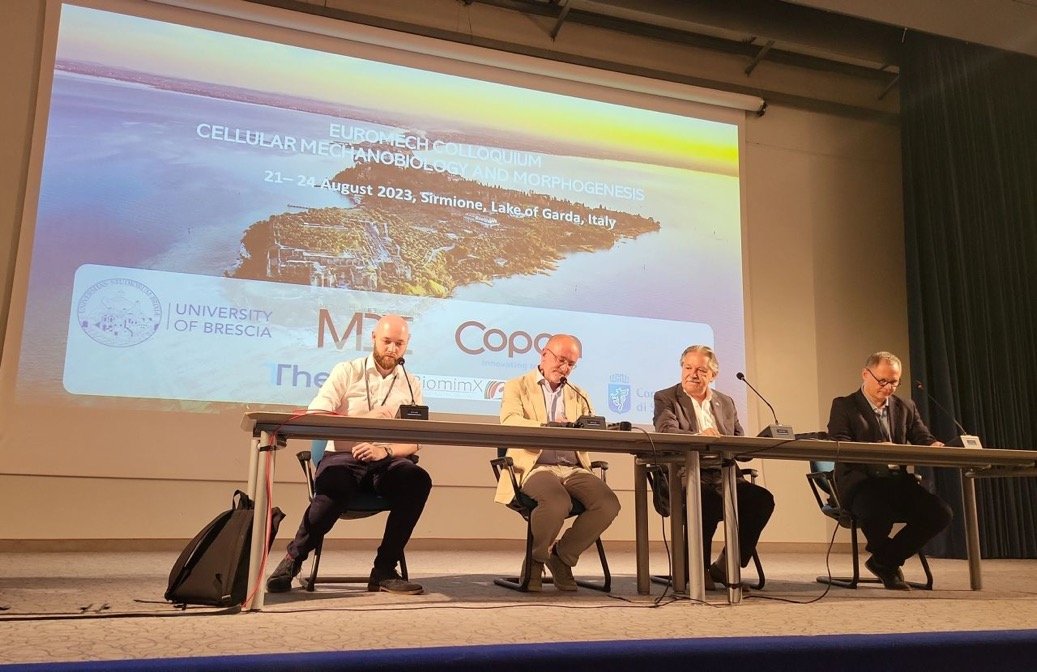It gives us great pleasure to announce the Euromech Colloquium “CELLULAR MECHANOBIOLOGY AND MORPHOGENESIS” to be held in Sirmione, Italy, 21-24 August 2023.
The Colloquium provides a unique forum for scientists and engineers across the world to exchange ideas and identify new research directions toward understanding mechanobiological processes in the human body, contributing to modern medicine and shaping a safe and healthy future. Research breakthroughs in the field require an immense multidisciplinary effort, including novel imaging and measurement techniques as well as advanced theoretical and computational models. The focus of this Colloquium is to explore the mechanics of cytoskeletal contractility and protrusion, migration, adhesion, ECM remodeling, morphogenesis, and nuclear mechanotransduction.
Global leaders in the field, invited by the scientific committee, will present their research in a series of plenary talks ( https://638.euromech.org/speakers/talks/ ).
We further invite interested scientists to present a poster in person and/or just attend our seminars and forums. All accepted posters will be collected in a book of posters that will be published on the Colloquium website. Poster applications should be submitted through this Google Form , with additional submission information provided therein.
The deadline for submission of poster abstracts is April 15 2023.
Due to generous sponsorship, we have been able to maintain a low registration fee for poster presenters and general attendees (€250 for early bird registration by 30 May). This fee covers attendance at the colloquium and the colloquium banquet which will take place in a local winery. We look forward to welcoming you to the wonderful city of Sirmione for what promises to be a very exciting and stimulating event.
------------------------------------------------------------------------------------------------------------------------------------------------------------------
All living cells and tissues exert and experience physical forces that guide their function. Those mechanical processes are pivotal in the biophysics of embryonic formation, tumor angiogenesis, cancer growth and metastasis, wound healing, and developmental diseases. A fundamental understanding of these mechanisms can contribute to the advancement of medical intervention, from reducing bone fracture risk in osteoporosis to device-based treatment of aortic aneurysm.
Tissue development and remodeling are mediated by cell-generated stresses and strains, which emerge at the nanoscale in response to complex biochemical interactions among cells and with their microenvironment. Cells can sense and mechanically respond to their surroundings by attaching to extracellular matrix (ECM) fibers through the formation of focal adhesions, developing actin networks, and actively generating tension via myosin motor contractility. This physical system is one of the most complex known to mankind and continues to be the subject of intense multidisciplinary research.
Theoretical and experimental characterization of living matter requires the collective effort of scientists across a wide range of disciplines, including solid mechanics and bio-fluid dynamics at different length and time scales. The role of mechanics in biology is therefore particularly relevant to the activities and expertise of the EuroMech community. We propose this Colloquium to encourage worldwide cooperation in advancing scientific understanding of cellular mechanobiology and morphogenesis .

